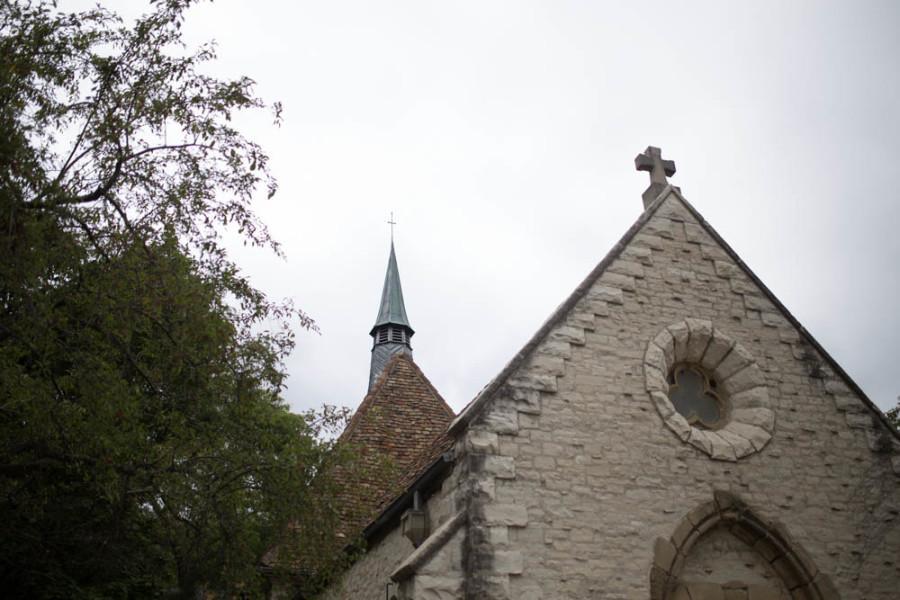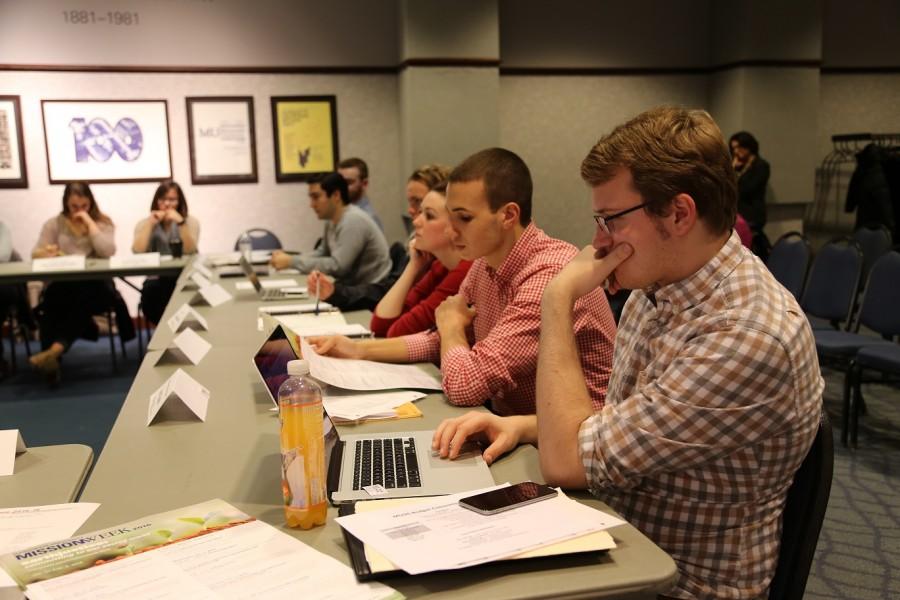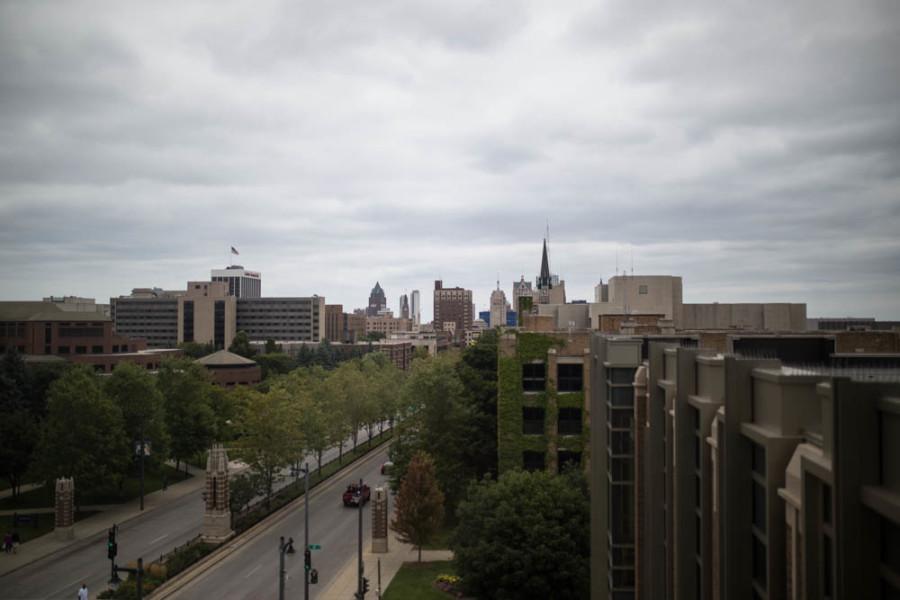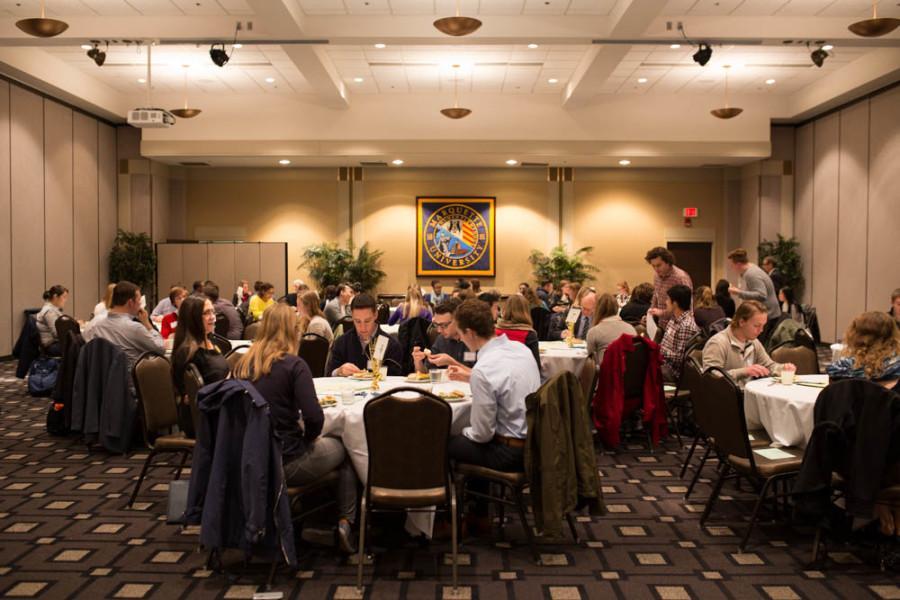Marquette Student Government’s third Dialogue Dinner on Wednesday offered facilitated discussions on Mission Week’s theme of working toward environmental sustainability.
The theme for Mission Week and the dinner was “Earthjustice: Committing to Our Sacred World.” It was devised to encourage the Marquette Community to discuss appreciations for the environment and to generate solutions for the issues it faces.
“(This Dialogue Dinner) really helps build a better community and a sense of understanding for how we can become better community members,” University President Michael Lovell said in an opening statement.
After grabbing a vegetarian dinner from the front of the room, participants sat with approximately five other people at each round table. Each table had a facilitator, who handed out questions on green slips for everyone to contemplate and discuss with the others at their table. Each table went through three rounds of questions.
“(The discussion) is going to be very structured, so everyone has a chance to talk and share their ideas,” said Markie Pasternak, Dialogue Dinner facilitator and senior in the College of Arts & Sciences, before the event.
While each table discussed the questions, facilitators took notes about new questions and insights that popped up. Participants could choose to speak on-the-record, or pass if they felt unable to answer or uncomfortable. All recorded comments were anonymous.
Participants discussed their favorite places in the environment – whether it was a city, suburb or country area – what made those places special to them and what they could do to better preserve them.
Several people noted that it is important to be an advocate for environmental issues that most people are unaware of.
“As far as it goes with the environmental issues, we all live in this earth, we all have some stake,” said Sammi Sluder, a senior in the College of Arts & Sciences. “Most people at least have heard of these issues, so everybody kind of had something to contribute.”
Catherine Knier, a senior in the College of Health Sciences, said this Dialogue Dinner allowed for participants to contribute to fixing environmental issues in the most effective way possible.
“(MUSG) take(s) the anonymous comments from people and passes them on higher up the rank so that real change can come,” Knier said.
There was also discussion about individual ways participants can directly enact change within Marquette.
“One of the things we talked about was composting and I hope that is something I can help work with others to get going on,” Knier said.






